
Known for his outspokenness and a sense of humour not commonly found in public officers, retired judge Woo Kwok-hing surprised everyone more than a month ago when he announced his intention to become Hong Kong’s next leader.
Following the announcement, the 70-year-old ex-judge made remarks deemed unconventional for a chief executive hopeful: he described Beijing’s violent crackdown on Tiananmen protesters in 1989 as “very inappropriate,” advised the government to be lenient towards young protesters, and criticised the powerful China Liaison Office – Beijing’s organ in the territory – for commenting on Hong Kong’s affairs.

One month on, Woo spoke to HKFP about the progress of his campaign and his view on youth activism after having met several student leaders, including lawmaker Nathan Law of the Demosistō party.
Political reform
Woo came out as an unlikely contender for Hong Kong’s top job with a bold statement: “I do not think Mr. C.Y. Leung has been able to address public grievances and halt the division of our society… I have no political baggage and hence I am in a strong position to help assuage conflicts and dilemmas amongst different political parties and community groups.”
Woo told HKFP that he has been busy meeting with different stakeholders to finalise his platform. “I’m not trying to please everybody, but I try to include various ideas in my platform. Anything which is workable and in accordance with my conscience that I can carry out, I’ll put it in,” he said.
The key to the “enormous division” facing Hong Kong, Woo believes, is to resolve the gridlock of political reform.
In 2007, Beijing promised universal suffrage for Hong Kong’s chief executive elections from 2017. In 2014, different political groups campaigned for their ideas on universal suffrage as the government prepared the reform package. Despite demands for greater electoral freedom, Beijing held that a 1,200-member nomination committee would vet candidates before a popular vote.

Beijing’s decision sparked the 79-day pro-democracy Occupy protests, and the reform package incorporating the decision was eventually voted down in the legislature last year. The current administration said that it would not consider restarting the reform process.
Woo previously said that he disagreed with Beijing’s decision on the political reform. He told HKFP that he is now trying to reconcile the differences between the pro-Beijing and pro-democracy camps.
“What has driven them apart so far, I think, originated from the failure of the political reform,” he said. “That’s why I would like to persuade people to come to their senses in a way to be able to agree to something which would bring up political reform again.”

Woo suggested the nomination committee could be expanded to be as representative as allowed by the constitutional framework.
Article 45 of the Basic Law stipulates that Hong Kong’s leader shall be nominated by a “broadly representative nominating committee.” In 2014, political groups could not reach a consensus on what constitutes a “broadly representative” committee, with some pro-democracy groups advocating “civil nomination,” the idea that the committee would consist of all eligible voters, thereby effectively preventing any vetting in the nomination process.
Woo said civil nomination is not possible within the constitutional framework. However, he said, “there is a lot of space for one to manoeuvre. The 1,200 people [on the nomination committee] are being elected by an electorate of 250,000 people or companies. If you broaden that to one million voters, that means you broaden it by three or four times altogether.”
“Then it will become a vastly, broadly representative nominating committee. On that basis, I think, something can be achieved.”
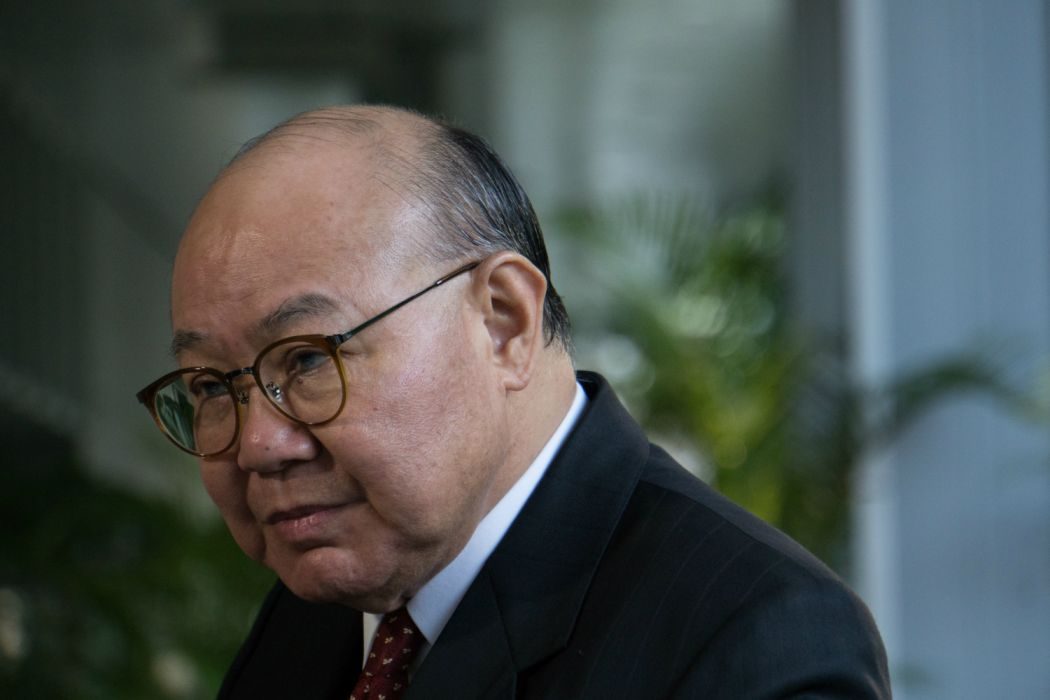
The candidate said a number of pro-democracy politicians had told him that they would be willing to replace civil nomination with a one-million-electorate committee. “Even the pro-establishment camp – they have no strong objection to this,” he said.
In fact, Woo said, the pro-establishment camp was more reluctant to broaden the democratic basis of the 35 functional constituency seats of the legislature. Currently, in many functional constituencies, only companies or their directors can vote for lawmakers representing their sectors. The pro-establishment camp has been dominating the functional constituency seats since the 1997 handover.
Woo said he would try to persuade those keen to protect their interests: “My plan is to… reason with them, try to understand their difficulties, and try to resolve their difficulties for them.”
Hong Kong independence
Woo’s campaign is to bring together major political forces in Hong Kong, which he said are broadly divided into two camps: “the pro-establishment camp, and the anti-establishment camp.”
“Two camps, simply, apart from the independence camp – I’m not counting them in at all because they’re such a minor voice in Hong Kong that you don’t even have to listen to them. And I’m dead against it anyway,” he said.
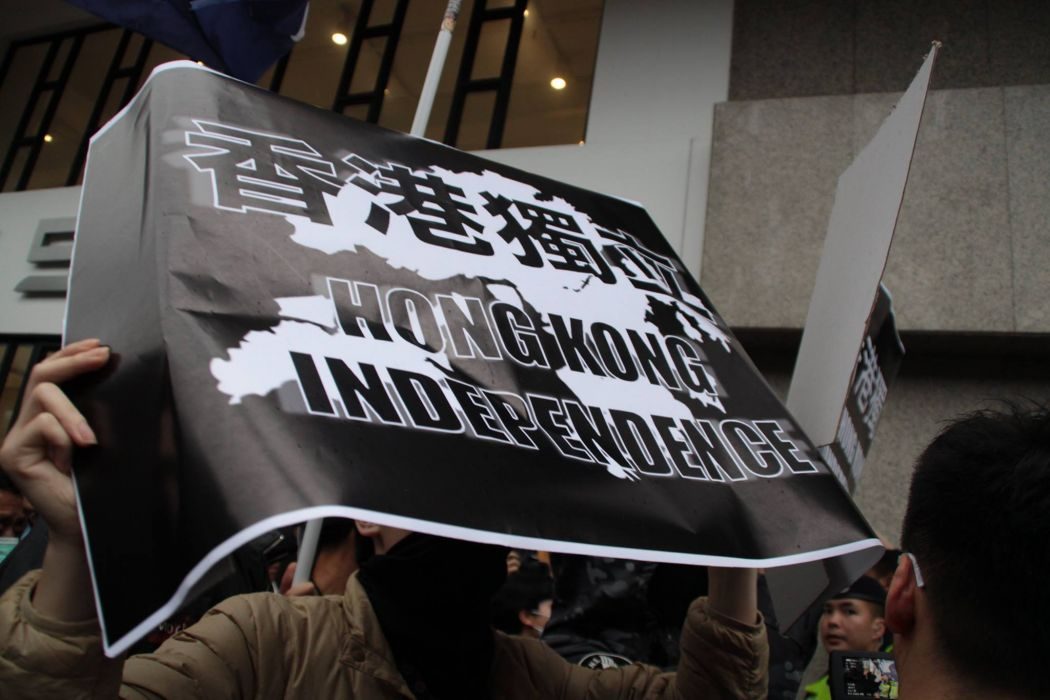
He said he opposed independence because it contravenes the Basic Law, which states that Hong Kong is an inalienable part of China. “It is absolutely impractical. It cannot be done at all,” he said. “Don’t do anything that is impossible.”
But a month ago, Woo said he would like to talk to young people who support independence to understand their views. Since then, he has spoken with a number of young supporters of independence or self-determination.
Asked to clarify what he meant when he said there is no need to listen to pro-independence advocates, Woo said: “Not that I don’t want to listen to them, but I’ve talked to some of these young people, they may not mean independence in the actual sense of the word.”
He gave the example of his discussion with the Chinese University’s student leader Ernie Chow during a phone-in radio show. Chow said on the programme that the minimum demand of the pro-independence camp is to separate Hong Kong from China politically and culturally.
But Woo said he did not see the logic in Chow’s argument. “He said look at the tourists who came down from the mainland, their attitude is horrible,” he said. “And I say, why do you say that we have to be divided form them? They don’t live next door to you, they are tourists, they are helping our economy by spending in Hong Kong.”
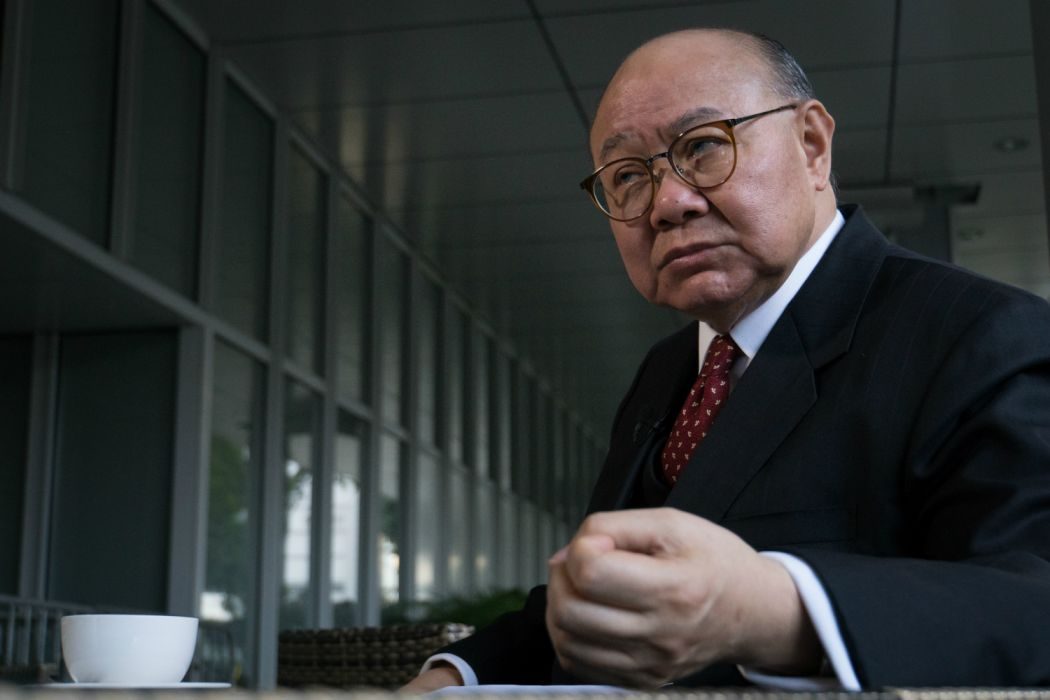
Woo gave an example of two European tourists playing Halloween pranks on locals. “Nobody hates them so much as to say we don’t want you in Hong Kong,” he said. “That shows people have a certain degree of patience, and if you exercise patience – those are young people, they’re playing, let it be – that sort of attitude [is what] we people in Hong Kong should have, because we are an international country, and tourism is one of our biggest money-earners.”
He added that he was told young people feel that Hong Kong culture has been “looked down upon” or destroyed, but he did not see any evidence of the claim.
Value difference
Asked if his disagreement with independence-leaning youth may be owing to value differences, Woo said: “In our younger days, our parents were not that rich of course… and they are less indulging than parents [nowadays]. The parents [today] are very indulging on their children, and because of that maybe children think: whatever I want, I’ll get it.”
“But when they start their own family, they will know it’s not easy. Nowadays especially, it’s not easy. Properties are expensive, and it’s difficult to get a roof over one’s head. I sympathise with them.”

Woo continued: “[A] lot of values you may say are different… but still, you sustain your livelihoods first, before you talk about values. That’s how I feel. But hopefully, people talking about independence, I hope they’ll understand, actually, carrying on talking about independence will bring misfortune to Hong Kong.”
Youth activism
Woo also advised young people against doing things that may “hurt the other population,” such as participating in protests without a notice of no objection from police, which organisers must obtain before holding protests under the law.
“Yes, we treasure young people very much, but I’m urging them to take into account the feelings of the slightly older generation and the older generation,” he said.

Beijing’s ruling
Two months ago, the Hong Kong government lodged an unprecedented judicial review against two independence-leaning lawmakers in response to the oath controversy. Beijing subsequently handed down a binding interpretation of the Basic Law, which set out the legal requirements of oath-taking that would effectively bar pro-independence politicians from taking public office.
The Court of Appeal ruled this week that Beijing’s interpretation applies to the legal dispute, as it retroactively came into effect on July 1, 1997 – the day when Hong Kong was handed over to China by the UK. The two lawmakers were disqualified from the legislature.
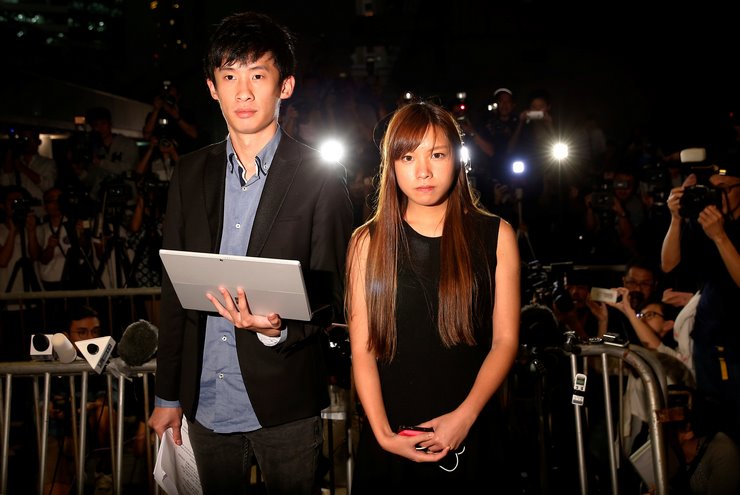
Woo said he agreed with the court’s reasoning, but he criticised Beijing’s poor timing of giving the ruling. “It is not a good way to handle the situation at that time, because the case was in the hands of the Hong Kong’s courts,” he said. “Then you’d seem to interfere with the court’s decision because you force the court to follow the interpretation.”
“The interpretation binds the Hong Kong’s courts. It has a colossal effect on the [courts’] decisions,” he said. “Before your decision is made, when you’ve heard the case, all of a sudden the interpretation was imposed on the Hong Kong court, of course it affects the Hong Kong judgment. [In] a lot of people’s eyes, it is no good.”
The ex-judge also previously criticised Chief Executive Leung Chun-ying for “unnecessarily” joining the Department of Justice as a party to the judicial review challenge. Under the Legislative Council Ordinance, only electors and the secretary for justice are entitled to bring legal proceedings against lawmakers over their offices.

Judge turned Hong Kong’s leader?
Critics have questioned whether it is appropriate for a judge to venture into the political arena. Woo dismissed doubts about the integrity of the judgments he has made. “My judgments were made when I was a judge and if anybody was dissatisfied with the judgment they could appeal, and there is a appeal system. The system is very fair, and actually that is the sort of internal check and balance.”
“If I become the chief executive, all of my judgments would have been given and time is long past for any appeal to be done,” he added.
Woo said he started considering to join the chief executive election around March because he “felt that Hong Kong has become too divided” and he “didn’t feel comfortable about it.” His last appointment as the deputy judge of the Court of First Instance ended on October 18. He announced his candidacy a week after his temporary appointment ended.
Woo previously said that one of his strengths is his neutrality and “ability to uphold fairness” owing to his experience as a barrister and a judge over the last 46 years. He also said in another interview that he is “not a government man.”
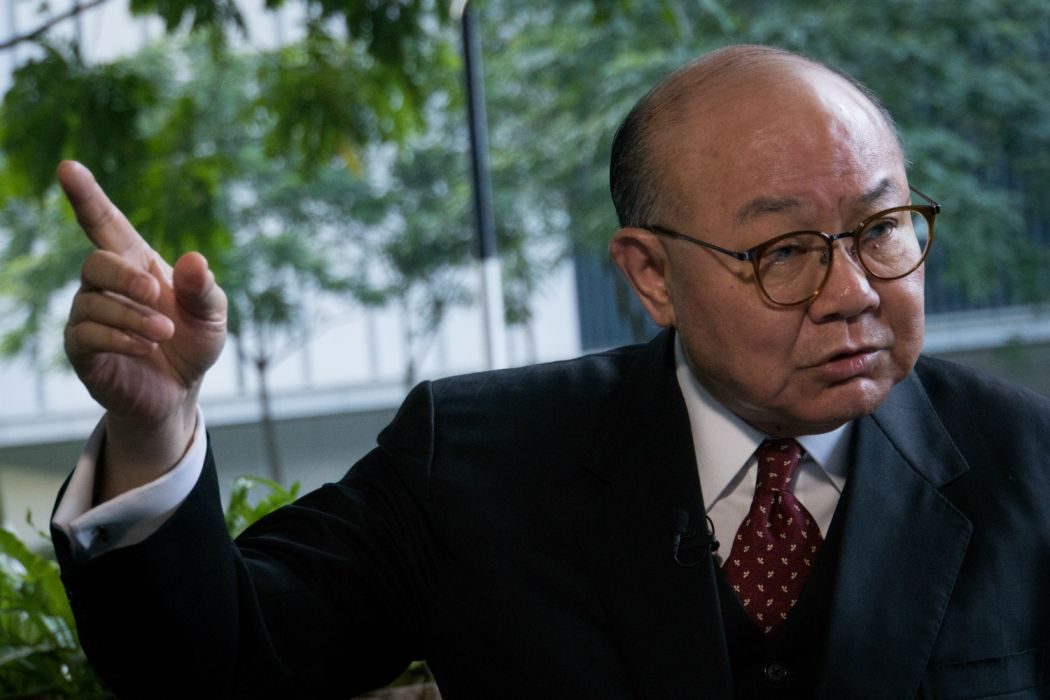
Indeed, Woo was critical of the work of the government when he held a number of public offices in the past, such as commissioner on Interception of Communications and Surveillance. During his office as the commissioner, Woo censured the police and the anti-graft body for their “poor attitude, arrogance and nearly disobedience” in response to his investigation.
Despite being considered a heavyweight in the chief executive race, not everyone believes Woo is sincere about becoming Hong Kong’s next leader. Some speculate that his candidacy was meant to assist other “serious candidates” such as Finance Secretary John Tsang.
Such speculations have not been substantiated. Woo himself has made it clear that he is determined to win the election and to lead Hong Kong out of the political turmoil.
At the end of the interview, Woo reiterated his position. He said each word slowly: “I wish to become the chief executive to gather all people in Hong Kong to live in a harmonious society. That’s my wish.”

